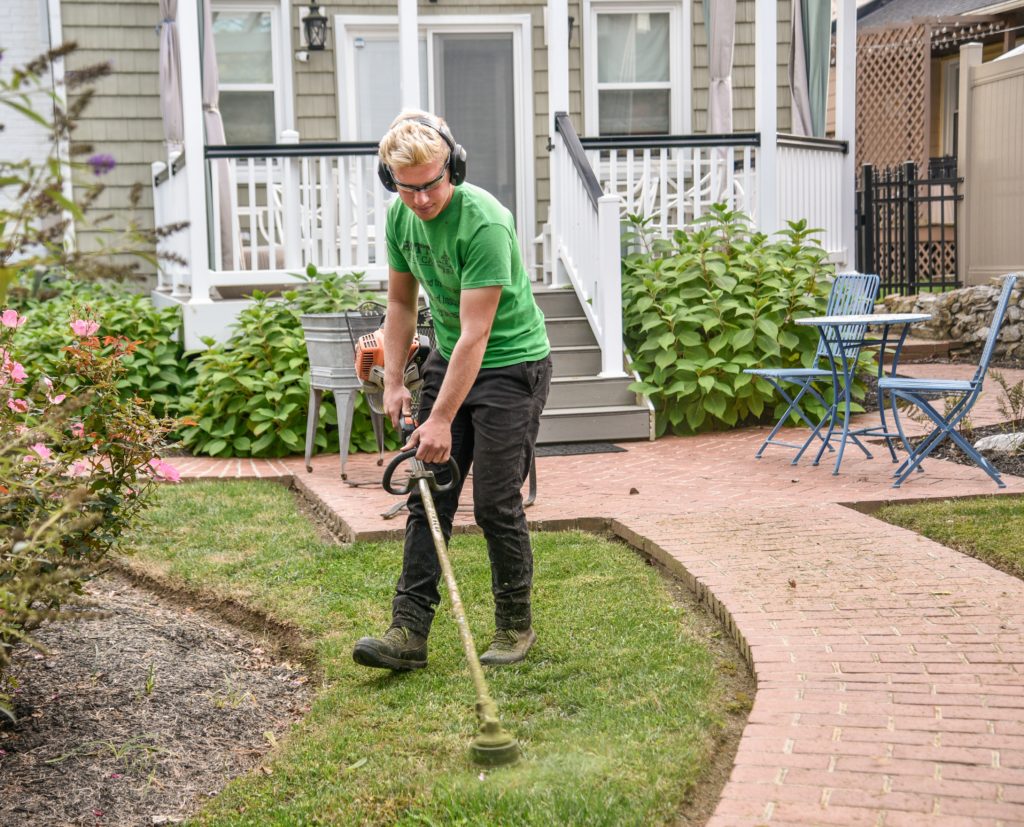Deciding to put your house up for sale can be a difficult decision to make. It can feel both scary and exciting. When you’re ready, investing some time to declutter and make small repairs can be beneficial and help you get your home market-ready.
All sellers want their homes to do well when it hits the market, and speaking with a professional real estate agent is the first step to getting ready. They can help you determine what exactly needs to be done before you sign a listing agreement and put that for sale sign in the yard.
To help you get ahead of the game, let’s review 5 easy ways you can prep your home when you’re getting ready to sell it.

1. Organize and Purge Your Space
Home buyers love seeing a place that shows off how much space is available in a house. Kitchens, bathrooms, and storage space are often selling points in homes, and clean, organized areas can stand out.
For example, buyers look at the following when viewing a home:
- How big of a kitchen they’ll have to cook meals in.
- How nice the bathroom is.
- How much closet space they’ll have for their necessities.
These things can help a buyer decide on whether they submit an offer or choose to look at other properties.
Cleaning up and decluttering can make a huge impression on buyers. To make things easy, try starting with your closets and cabinets by getting rid of, selling, or donating items that are old, out of date, or are things that you no longer need.
The slightest improvement to these areas can help you tidy things up as well as ease any anxiety you may be feeling about putting your home on the market. From there, work outwards towards the rest of the space in your home. Aim for your living room, garage, and any open spaces where you can eliminate clutter.
During this process, it can be beneficial to invest in storage bins, baskets, or cubbies that can be easily tucked away or stacked neatly. Not only can this help make an impression on buyers, but when a professional real estate photographer comes to capture the beauty of the home it’ll show in the pictures.
One additional benefit is that decluttering can also assist you with packing when it comes time to move.

2. Identify Needed Repairs and Get Estimates for Fixing Them
Believe it or not, a fresh coat of paint doesn’t always equate to being a ‘home improvement’. In the mindset of ‘if it isn’t broke, don’t fix it’, painting isn’t always a necessity.
Depending on the current market and your specific situation, your REALTOR® may tell you not to worry about painting before listing the place. This is because many homebuyers have specific colors, shades, or hues that they’re dreaming of when they look at a home. They may paint over the colors that are currently there as soon as they close on the property, which can defeat the purpose of you putting in all of that hard work in the first place.
The best rule of thumb is that if you want to touch up some areas, that’s fine, but if it’s not desperately in need of a paint job then you can save yourself time and money.
Hinging on your time and ability to do so, making everyday or major repairs isn’t always something you need to do before selling your home. Cost-efficient and quick fixes that may benefit viewings once your home is listed include:
- Changing out dim or dull lightbulbs
- Pressure wash the siding of your home, garage doors, and porches
- Patch small holes or cracks in walls and ceiling
For major repairs, you may not want to or be able to fix them right away, but you can get estimates on the cost of fixing them for potential buyers. This can help home buyers with seeing the potential in the home, and some may want to handle the repairs themselves.
Potential issues to check for are:
- Leaky Faucets
- Test all appliances to see if any aren’t fully operational
- Faulty electrical outlets
- Wear and tear on shingles
- Standing water in attic spaces and crawlspaces
Making any repairs is entirely your choice. When you list a property, you can always choose to sell the place as is, but small things that are easy to fix can help market your home.
When a good offer comes in, there will likely be a negotiation period to address concerns and discuss potential repairs following an inspection. Your real estate agent can assist you with deciding how to negotiate.

3. Utilize Your Green Thumb in the Yard
Everybody loves a green yard. It’s the first thing you notice when you pull into a driveway and the last thing you see when you leave. You may not be a magician when it comes to plants and bushes, but you don’t have to be to get your yard market-ready.
As you’re getting your house ready to list, completing simple tasks such as mowing the grass, trimming back hedges, and getting rid of any weeds or adding fresh mulch can make a big impact.
The yard helps highlight the house. It accentuates the place by making that important first impression, and home buyers will notice a home more if the yard is tidy and well kept.
You don’t need a professional landscaper to come in and completely redo everything, but if you have the ability to plant a few colorful flowers, it can really help make the small details pop.
Bonus Tip: Check for Warranties
Depending on how long you’ve had your appliances, it can make a home buyer feel like you’ve gone the extra mile if you’ve compiled any warranties for appliances you’re considering leaving behind. If you’ve had any roof repairs, landscaping, foundation, or general construction done on or in the home within the last few years, you might also find that those services are still under warranty.





